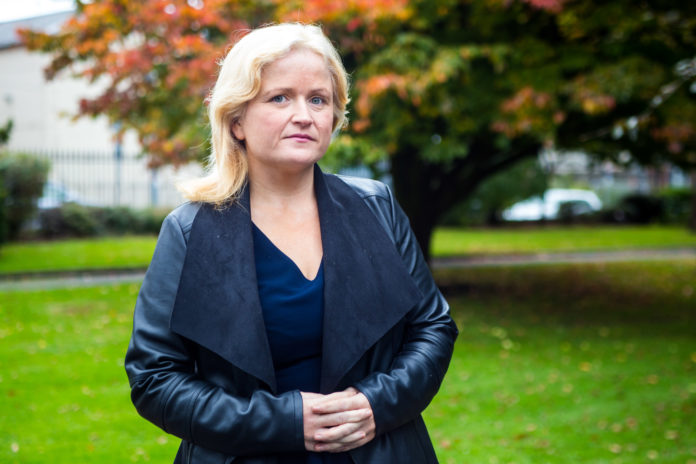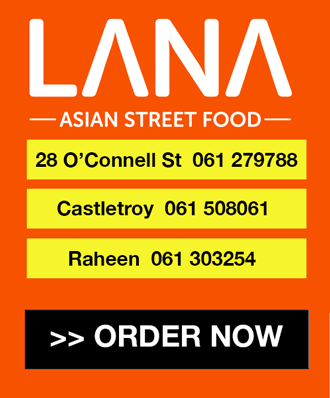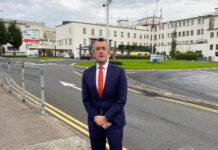
THE LAST time Leona O’Callaghan tried to die, she swallowed 100 tablets, slit her wrists and threw herself into the River Shannon.
The Limerick mother-of-three was rescued and lived to tell the tale.
The first time she attempted suicide, she went to the graveyard where she was raped at twelve years of age. It was the start of a hellish saga that lasted two years.
“I wanted the pain to end where it had begun,” she explains.
“I went in the river on December 23, 2015. I wrote a letter to my abuser. I told him ‘you’ve won’.
Members of St Michael’s rowing club came to help me first and they were joined by the Limerick Search and Rescue Service. I wasn’t thanking them then, but I am now, and ever since”.
Suicide was one of the few things the determined Limerick woman has failed at.
Leona O’Callaghan is a survivor – and in more ways than one.
A business owner, and soon to be a fully qualified accountant, she is now moving into the realm of setting up a lifeline for other abuse survivors, using the classic Twelve Steps programme employed so successfully by addiction counselling services and more lately, adapted by mental health organisations.
“It’s about hope,” Leona says of Survivors Support Anonymous (SSA).
“When you’re in the darkest place, it can really help to know you’re not alone. The anger, the fear, the despair, it has all happened to other abuse survivors and because this is a peer group, there will be people there who can say, ‘what you’re feeling is normal after what you’ve been through – next week, next month, you’ll feel differently”.
Later this month, she will see her abuser sentenced for the crimes he has admitted to – two counts of rape and five counts of sexual assault on Leona when she was a child.
“He manipulated me – he told me he could see the future and bad things would happen for me. He said he had to be near me, to look after me. He was a friend of the family. We had a bereavement and he was an adult I trusted. He used that and got inside my head and messed me up. I hated myself for years”.
Leona lived with the pain, guilt and self-hate for years, working two jobs, studying and raising a family.
“I was eight and a half months pregnant sitting my Leaving Cert and I got 515 points. I always worked hard. I kept busy so I don’t have time to think but that only works for so long. I was floored. I had flashbacks and panic attacks. I couldn’t look after my kids on my own because the panic got so bad, I was screaming. I couldn’t drive. I couldn’t study or work. I believed I was nothing but a drain on the people who loved me”.
Leona says his manipulation distanced her from her family and people who cared for her. Even after revealing the abuse, it is still a struggle to maintain normal relationships.
“To this day, there are friends, members of my family that I can’t have a relationship with because they don’t get it. They will say something that triggers a response. One person asked me what was I doing, going to a graveyard with him in the first place?”
The real breaking point came for Leona in her adult years when her abuser appeared back in the city. Years earlier, after confiding in her teacher, Leona believes someone warned him off and he left Limerick.
“More than a decade later, he came back. I kept seeing him and I couldn’t deal with it. One day I saw him on the street and I just abandoned my car in the middle of the road to confront him. He tried to hug me. I was stunned.
“I told him I would get him ten years in jail unless he left but he didn’t go. I made an official complaint”.
The ensuing investigation was deeply difficult for Leona.
“It came down to individual dates and details – who opened whose trousers, details like that were very hard to go back to. I had to go back to that graveyard to pinpoint the exact spot where the rape happened”.
The investigation took years and only ended in the court on the eve of what would have been a long trial when the accused man pleaded guilty.
Leona has come to terms with the fact that it is likely that any new sentence imposed by the court will run alongside his current prison sentence.
“That’s the way it works. He won’t serve a day longer in prison for what he did to me.
“But I’m going public and I’m going to name him because he can serve ten years and that will go by in a flash. I don’t want to be in my fifties and have to worry that I’ll meet him on the streets of Limerick. I want him named so that he can’t live here anymore”.
“He’s already serving a sentence for sexual crimes involving a minor.
“I hated myself for years for not speaking up sooner and not protecting others. But I am glad that one of the charges he pleaded to was the first time he raped me, in the graveyard – that’s important. Because he later made me believe this wasn’t wrong, and I didn’t understand this was abuse.
But that time, that was one time, I’m absolutely certain I said no and he held me down and raped me”.
Leona and her three children have just moved to a new home in County Limerick after the breakup of her marriage.
As one of the whistleblowers who exposed widespread financial irregularities at the University of Limerick, she had also been involved in a difficult work situation.
“There was just so much pressure and stress on us but my ex-husband is still my best friend and he is very supportive”.
Leona also had help from the abuse survivors organisation ‘One in Four’ and had counselling from Rape Crisis Mid West but didn’t seek or get help until she was 28 years old.
“You try to block it out, but I was getting flashbacks all the time, Now, I can say these are bad memories and live with that. I’m stronger and I can say now that what he did was not okay”.
Offering support is behind Leona’s decision to establish SSA.
She took formal training and qualified as a facilitator. There are seven other people, also qualified, volunteering as facilitators along with her.
“This group is not about relieving every detail of abuse – that’s more suited to a professional setting. What it is about is support and helping people to live in the now and to hear from other people at different stages of their recovery.
“I want survivors to know there is hope, you can have a good life. I’m doing this for myself as well because recovery, like life itself, is not a straight line. There will be setbacks and you need support to get back again”.
As well as offering support to survivors of sexual abuse, the group is also open to people who have suffered emotional, mental, physical or domestic abuse.
Leona has modified the twelve steps approach to suit the group, leaving it open for the ‘higher power’ – which is traditionally thought of as God – to be a self-empowerment.
“I believe we all have recovery within us,” she says.
Leona believes the court hearing in Dublin on October 22 will be a major milestone in putting her personal horror behind her. She has already decided to waive the anonymity, which is given as a right to sexual abuse survivors, so that the convicted abuser can be named.
“This will be a new start for me and for my children. I’m optimistic about the future. And I’m hoping the survivor’s group will offer the opportunity of a new start for others”.
If you have been affected by any of the issues raised in this article, contact Samaritans at:
- Call Freephone: 116 123
- Text: 087 2 60 90 90 (standard text rates apply)
- Email: [email protected]
Or contact Rape Crisis Mid-west on:
- Email: [email protected]
- FreePhone: 1800 311511 or 061 311511










